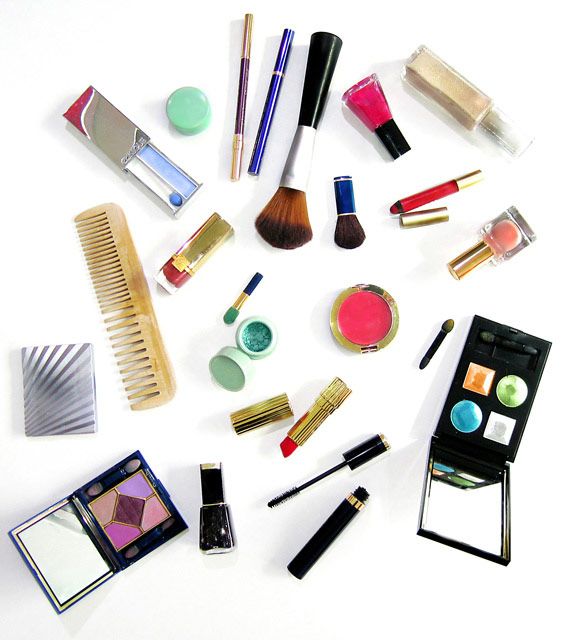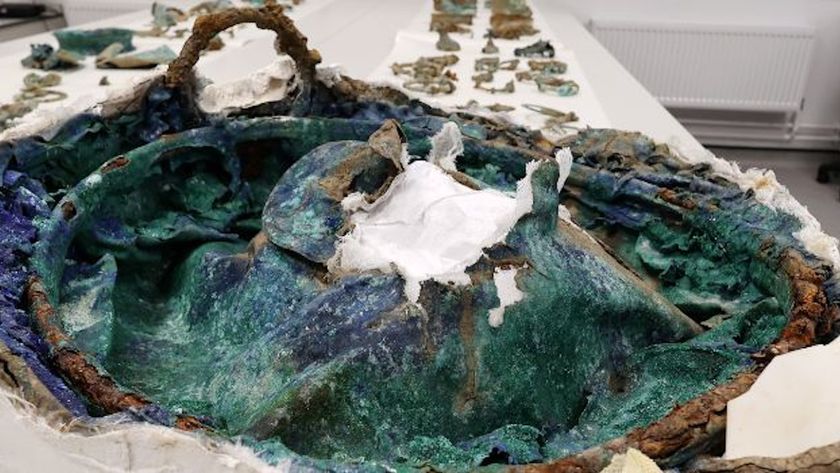Many 'Natural' Products Make Dubious Claims

A product with "natural" ingredients may be no better for you than one with artificial ingredients, but a lot of us still trust advertisements that suggest as much. Yet ads are often full of dubious scientific claims.
A new review of scientific and pseudoscientific claims in advertising finds that the misuse of science in ads takes several forms, including unsupported claims, misleading statistics and misuse of scientific terminology.
"It's not a direct lie," said Jenny Molloy, a student at the University of Cambridge in England, who worked on the review with her colleagues Sonja Dunbar and Ying Teo, "but it's a false association that should not be allowed to continue." Molloy presented her research this past weekend at the annual meeting of the American Association for the Advancement of Science, in Chicago.
In the United Kingdom, advertisements are regulated by the Advertising Standards Agency. Here are some of their verdicts, on products sold there and here in the United States:
- A big-name "night repair" cream claims to improve skin appearance by protecting against ultraviolet radiation. The ASA found this claim "misleading." There is no benefit to UV protection for most of us at night when we're indoors and the sun is on the other side of Earth. Perhaps this would be useful to outdoor night-shift workers in the Alaskan summer?
- A "anti-cellulite" cream claims it will give you a sleeker silhouette in two weeks. The ASA found this claim "misleading," ruling that the ad promised more than the studies behind it proved. The maker countered that it thought consumers did not expect the product to affect the fatty deposits below the skin.
- A big-name lawn and garden care company claimed its organic compost was "100 percent chemical free." The ASA let this one go, saying the colloquial understanding of the term "chemical" referred to "man-made" chemicals. However, in October 2008, the Royal Society of Chemistry in the UK announced a £1 million prize for the first person to bring them an entirely chemical-free product. The back of the dubiously promoted compost package lists its chemical-free ingredients, which include phosphorus pentoxide and potassium oxide, the Society points out. "The truth, as any right-minded person will say, is that everything we eat, drink, drive, play with and live in is made of chemicals — both natural and synthetic chemicals are essential for life as we know it," said Society Director Neville Reed.
More dubious claims
An example of an ad based on a fair claim is retinol, which states that the Vitamin A derivative stimulates skin cells to more closely resemble younger, healthier cells, Molloy said. And some studies have found that medical claims about functional foods, such as cholesterol-lowering spreads, are justified.
But some other bad claims include low-fat alternatives to food products, which often contain so much sugar that the end product is higher in calories than the original product.
Sign up for the Live Science daily newsletter now
Get the world’s most fascinating discoveries delivered straight to your inbox.
Organic foods are perceived as healthier, but the evidence is divided, Molloy found. For instance, while organic milk has 50 percent more Vitamin E than conventional milk, it has 15 percent less Vitamin A, her review showed.
And one study found that the numbers of bacteria in the gut did not increase when probiotics, like those found in yogurt, were taken. The effects depend on the individual taking them. For average healthy individuals, they may not be worthwhile, Molloy found, though they might benefit "at risk" groups.
"The most difficult to counteract, and possibly the most dangerous of claims, are possibly scientific claims," she told LiveScience. However, pointing out false claims and improving consumers' scientific literacy is no guarantee that they will change their buying behavior, she added.
What does 'natural' mean?
Personal experience with ads inspired Molloy to investigate science in advertising.
"I'd seen a lot of advertisements that were annoying me," she said. One such ad was for a fruit-flavored drink with "natural" flavors. "Cyanide is produced naturally. Ricin is produced naturally but I wouldn't want them to flavor my drink," Molloy pointed out.
Public trust is fairly high in science and advertisers. In a 2005 government poll, 70 percent of the UK public said they would trust a scientist to tell the truth. And a 2007 consumer study by Nielsen Media Research showed that more than 50 percent of subjects trust advertisements in all forms of traditional media.
Nowadays, many advertisers use science to their advantage, and know how to influence consumers based on results from psychological research and behavioral economics, Molloy said.
A field called neuromarketing, in fact, features the use of fMRI brain scans and other techniques to assess the influence of packaging and marketing messages on the human brain, she said.
- Video — Attention Training
- Effective Ad Strategy: Leave the Facts Out
- Why We're Such Suckers for Advertising
Robin Lloyd was a senior editor at Space.com and Live Science from 2007 to 2009. She holds a B.A. degree in sociology from Smith College and a Ph.D. and M.A. degree in sociology from the University of California at Santa Barbara. She is currently a freelance science writer based in New York City and a contributing editor at Scientific American, as well as an adjunct professor at New York University's Science, Health and Environmental Reporting Program.












